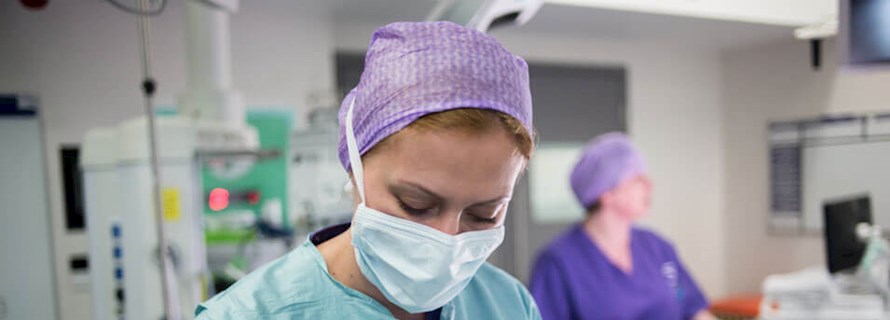Long QT syndrome
A heart rhythm disorder that is usually inherited
Long QT syndrome (LQTS) affects the bottom chambers of the heart, causing a rapid heart rate and abnormal rhythm
About Long QT syndrome
Need to know
-
What are the symptoms of long QT syndrome? icon plus
Some people with LQTS have no symptoms and the condition is only detected on a heart monitor or during an electrocardiogram (ECG) carried out for other reasons. Some symptoms include:
- fainting or blackouts
- palpitations or chest fluttering
- feeling lightheaded
- cardiac arrest
These symptoms can be triggered by strenuous exercise, stress, a sudden noise or a slow heart rate while sleeping.
-
Diagnosing LQTS icon plus
An electrocardiogram (ECG) is the main way to detect long QT syndrome. If you have this condition, it shows up on an ECG as a lengthened QT interval, which is part of the heartbeat cycle.
Sometimes other tests are needed such as an exercise ECG, which is an ECG carried out during physical exertion. Alternatively, you may be given a Holter monitor, which is a portable ECG recording device to wear for up to a few days to get more readings. Genetic testing can also be carried out and may help determine your type of LQTS.
-
Potential treatment options icon plus
Treatment can help prevent the symptoms of LQTS and minimise the risk of fainting or cardiac arrest. Inherited LQTS is usually treated with medicines. Depending on your symptoms, you may also need to have an implantable cardioverter defribillator device fitted. This is implanted under the skin on your chest and wires connect it to your heart. It monitors your heart rhythm and can give a brief electrical shock to reset the rhythm. People with non-inherited LQTS are usually treated by changing the medicines that caused the problem.
Our consultants




Our locations
From complex cardiothoracic surgery to diagnostic tests and procedures, we provide exceptional cardiac care across our network of hospitals, outpatient centres and specialist clinics.
Book an appointment
Our team can help with any enquiries or you can make an appointment with one of our experienced consultants.
Call us today
020 7079 4344